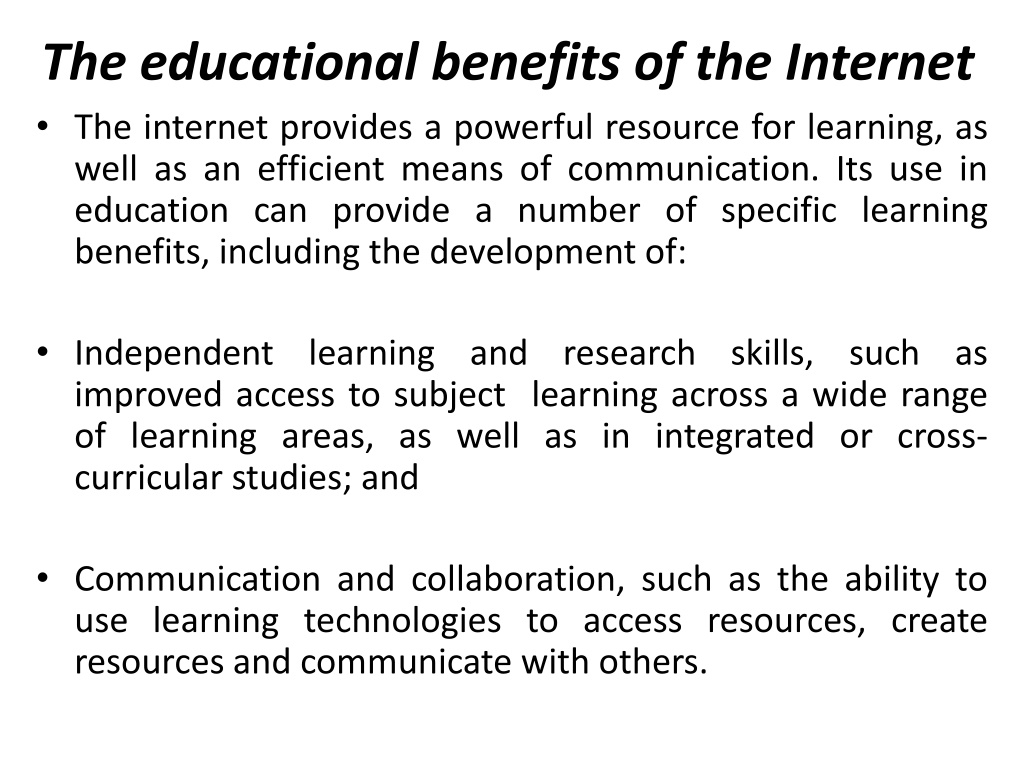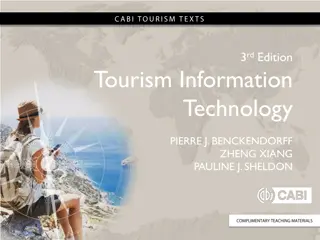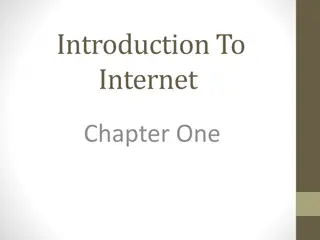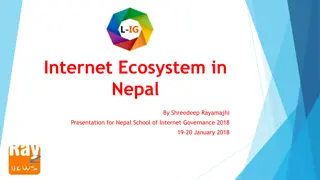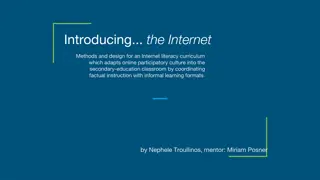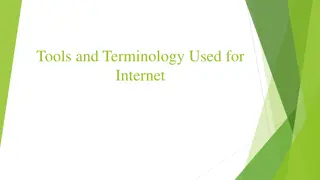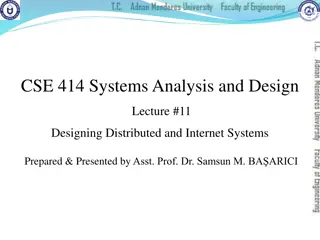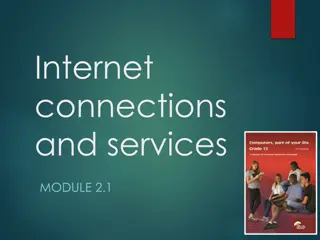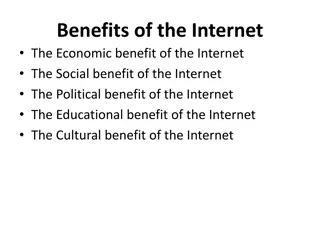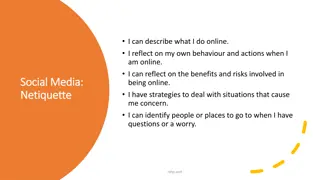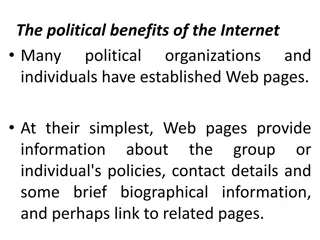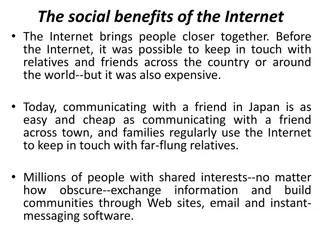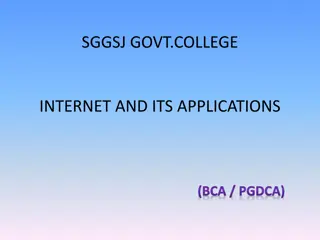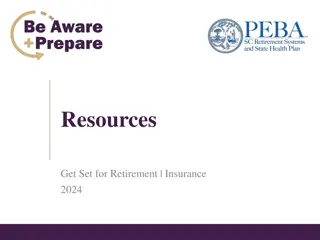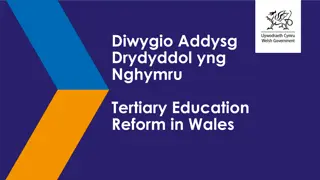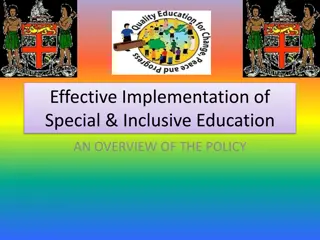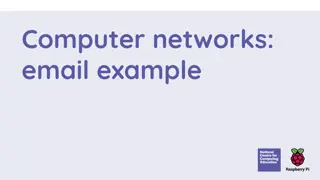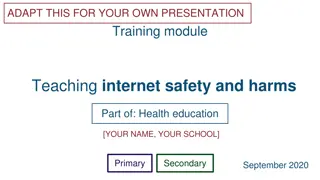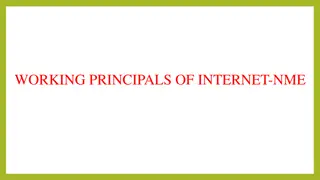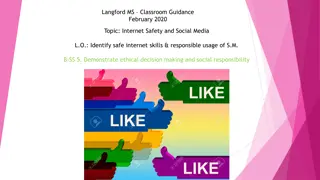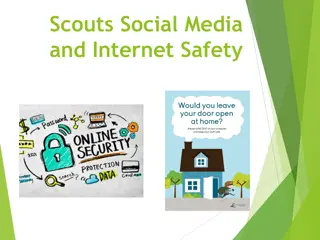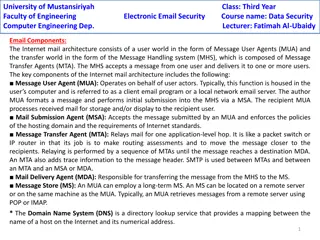Benefits of Internet in Education
The Internet offers vast educational benefits by providing access to a wide range of learning resources, enhancing communication and collaboration skills, and enabling time-independent learning. It expands students' access to diverse materials, facilitates research projects, and supports the development of essential skills like language proficiency. Additionally, the Internet plays a crucial role in distance education, making learning more flexible and convenient for students.
Download Presentation

Please find below an Image/Link to download the presentation.
The content on the website is provided AS IS for your information and personal use only. It may not be sold, licensed, or shared on other websites without obtaining consent from the author. Download presentation by click this link. If you encounter any issues during the download, it is possible that the publisher has removed the file from their server.
E N D
Presentation Transcript
The educational benefits of the Internet The internet provides a powerful resource for learning, as well as an efficient means of communication. Its use in education can provide a number of specific learning benefits, including the development of: Independent improved access to subject learning across a wide range of learning areas, as well as in integrated or cross- curricular studies; and learning and research skills, such as Communication and collaboration, such as the ability to use learning technologies to access resources, create resources and communicate with others.
Access to resources: The internet is a huge repository of learning material. As a result, it significantly expands the resources available to students beyond the standard print materials found in school libraries. It gives students access to the latest reports on government and non- government websites, including scientific and artistic resources in museums and art galleries, and other organisations with information applicable to student learning. The internet can be used for undertaking reasonably sophisticated research projects. research results,
The internet is also a time-efficient tool for teachers that expands the possibilities development. for curriculum Communication and collaboration: The internet is a powerful tool for communication and collaboration skills. developing students
Above all, the internet is an effective means of building language skills. Through discussion groups, students learn the basic principles of communication in the written form. This gives teachers the opportunity to incorporate internet-based activities into mainstream literacy programs and bring diversity to their repertoires of teaching strategies. email, chat rooms and For example, website publishing can be a powerful means of generating enthusiasm for literacy units, since most students are motivated by the prospect of having their work posted on a website for public access.
The Web is playing an increasingly important role in the area of distance education. Web-based learning can supplement or replace traditional distance educational opportunities which have been provided in correspondence, printed materials, audio or video cassettes, and television. the past via postal The Internet's great strength is that it can make instruction time-independent independent; it is able to reach students whenever and wherever they find it convenient to learn (in their homes, at work, etc.). and location-
